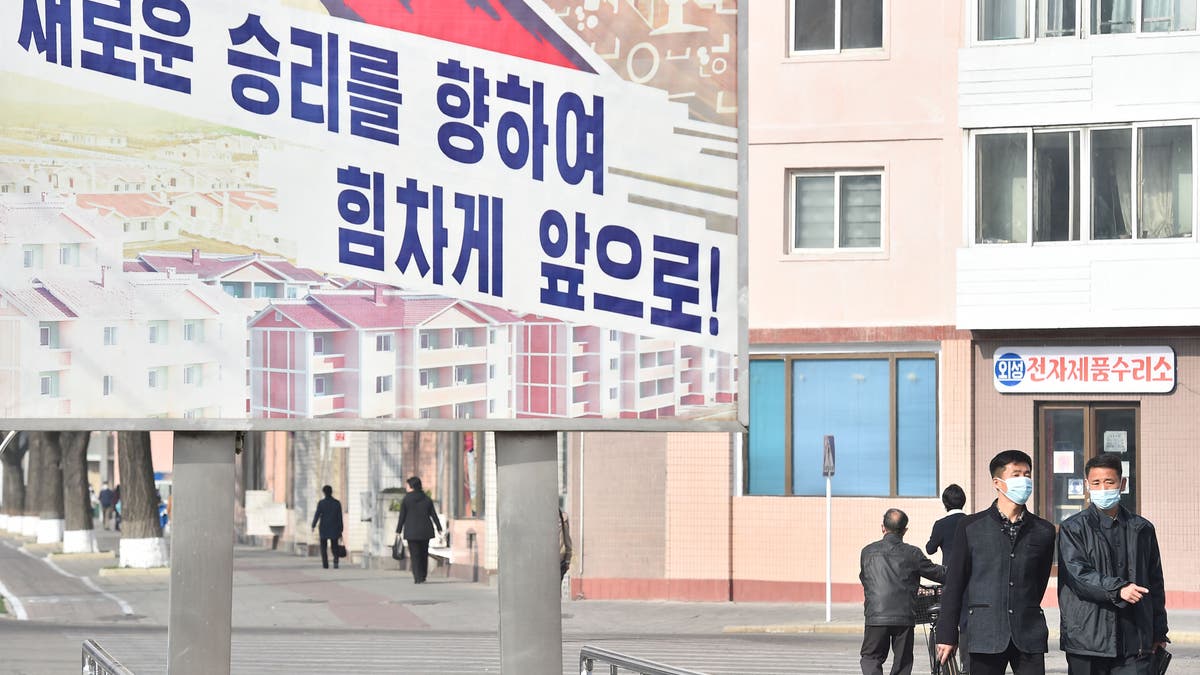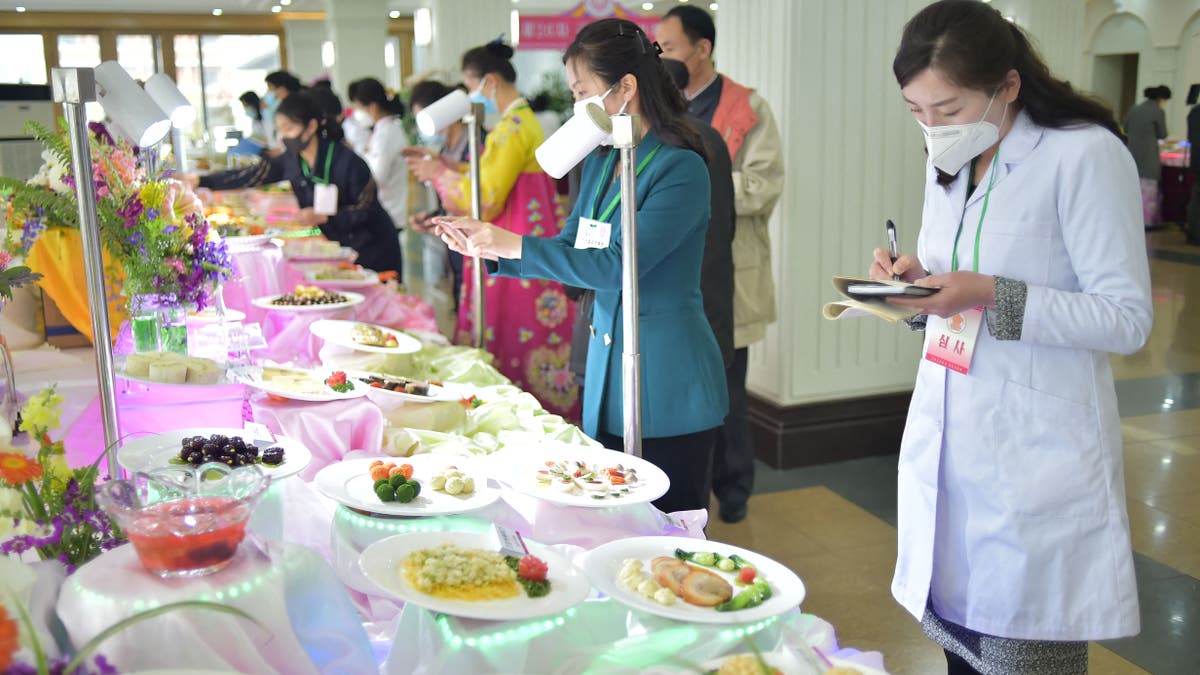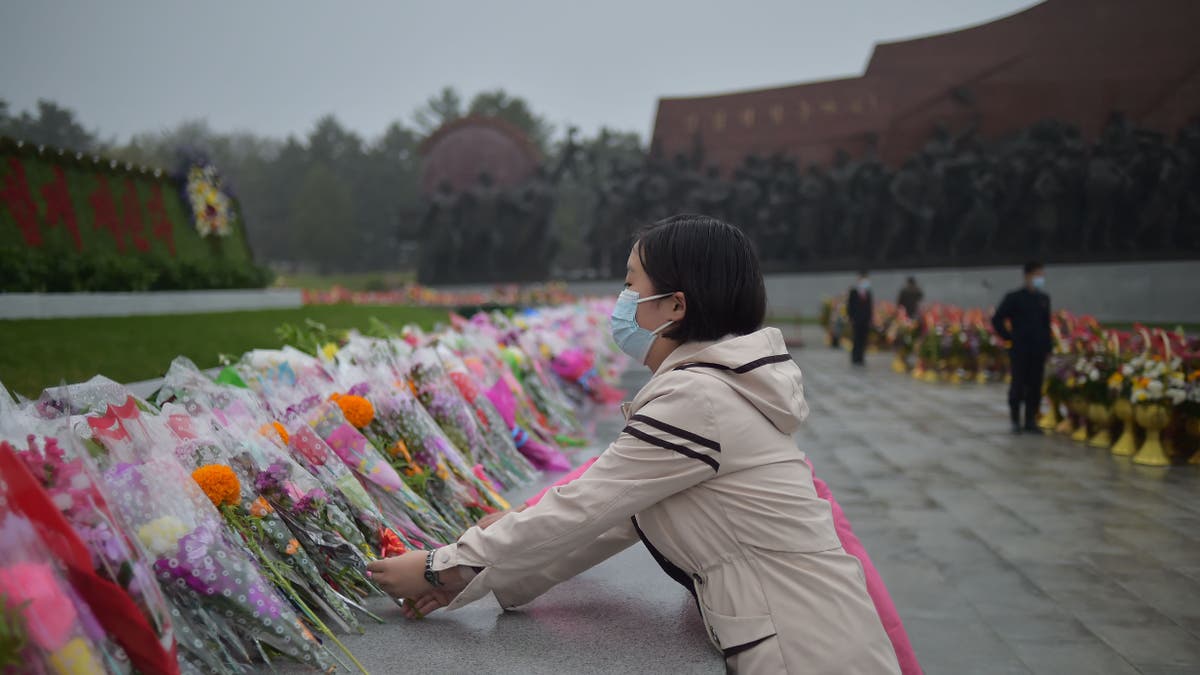Biden warns North Korea that nuclear attacks would be 'the end' of regime that fires missiles
President Biden spoke at a joint press conference with South Korean President Yoon Suk Yeol on Wednesday, April, 26, 2023, where he said a nuclear attack by North Korea against the U.S. or allies would be "unacceptable."
This story discusses suicide. If you or someone you know is having thoughts of suicide, please contact the Suicide & Crisis Lifeline at 988 or 1-800-273-TALK (8255).
North Korea continues to struggle as its borders remain closed since the start of the coronavirus pandemic, with many people losing hope, and leader Kim Jong Un forced to allegedly ban suicides.
"The stories of the plight of the North Korean people are heartbreaking. The Kim regime does not care about the North Korean people," Anthony Ruggerio, Senior Director of the Foundation for Defense of Democracies and former National Security Council Director for North Korea, told Fox News Digital.
"The Kim family spends the billions it makes from illicit activities on missiles, nuclear weapons and luxury goods to sustain their lifestyle," he added. "The best way to help the North Korean people is to sanction the regime and Chinese companies, individuals and banks who allow this tragedy to continue."
In a recent BBC report in cooperation with NK Daily, the U.K. outlet spoke with three ordinary North Koreans about the state of the country following the devastating toll COVID19 had on the nation.
KIM JONG UN BALLOONS PAST 300 LBS. AMID REPORTS OF PILL 'HOARDING,' HEAVY DRINKING
A medicine seller using the name Myong Suk told the British outlet that businesses that were once healthy have dwindled to virtual non-existence. She claimed that the country’s food situation "has never been this bad."
Increasing poverty has caused suicides to spike 40% over the past year alone, Radio Free Asia reported, citing government officials but unable to confirm the tally.

Pedestrians walk past a poster with a slogan that translates as "March forward for a new victory!" near the Pyongyang Grand Theatre in Pyongyang on March 31, 2023. (Kim Won Jin/AFP via Getty Images)
"There are a lot of internal unrest factors in North Korea due to the hardships of people," the South Korean National Intelligence Service told the outlet.
In response, Kim officially declared suicide an "act of treason against socialism" and ordered his government to take preventative measures – an order delivered in emergency meetings in each province at the provincial, city and county levels. An official from the northeastern province of North Hamgyong also claimed that violent crimes have increased.
NORTH KOREA STATE MEDIA MOCKS US FOR BLINKEN'S ‘DISGRACEFUL BEGGING TRIP’ TO MEET WITH XI
"Our meeting was held at the provincial party committee’s building located in Pohang district, in the city of Chongjin," he said. "The large number of suicide cases in the province was revealed, and some officials . . . could not hide their anxious expressions," the North Korean official told the BBC.
Party officials told local politicians that suicide has a greater social impact than starvation, but the party offered no solution as to how the local governments could effectively prevent further attempts.

A man walks past a television screen showing a news broadcast with file footage of North Korea's leader Kim Jong Un, at the Seoul Railway Station in Seoul on May 31, 2023. (Jung Yeon-Je/AFP via Getty Images)
"Most of the suicides were caused by severe poverty and starvation, so no one can come up with a countermeasure right now," the anonymous official said. He described hearing about a boy whose parents died of starvation and whose grandparents subsequently consumed rat poison when their hunger became too much for them.
The correspondence between the BBC and the three North Koreans living inside the country add the much-needed context to understand the true severity of the situation most people face: Myong Suk said she had gone from feeding her family rice to scraping out meals of corn alone for her family, with neighbors daily begging her for food.
US NUCLEAR SUBMARINE ARRIVES TO SOUTH KOREA A DAY AFTER NORTH KOREA RESUMES MISSILE TESTS
She says that the people are "living on the front line of life."
"Before COVID, people viewed Kim Jong Un positively, but now almost everyone is full of discontent," she said.

This photo taken April 11, 2023, shows people taking photos and writing notes as dishes are displayed during the 26th Cooking Festival, which marks the Day of the Sun, the birth anniversary of late North Korean leader Kim Il Sung, at the Pyongyang Noodle House in Pyongyang. (Kim Won Jin/AFP via Getty Images)
A construction worker calling himself Chan Ho told the BBC that his income – 4,000 won, equivalent to $.50 a day – is no longer enough to buy the rice needed to feed his family, forcing him to rely on government rations, which he also stopped receiving.
The prices of rice, corn and seasonings have risen so high that no one can afford them anymore, he said, and the country does not produce enough food to support its population. In addition to limiting food imports, the border closure denied workers access to fertilizer and machinery needed to grow crops.
He even described how a friend’s son became so malnourished that the military released him from service.
"At first, I was afraid of dying from COVID," he said. "But then I began to worry about starving to death."

In this photo taken on April 15, 2023, people visit the statues of late North Korean leaders Kim Il Sung and Kim Jong Il on Mansu Hill, as part of celebrations marking the 111th anniversary of the birth of Kim Il Sung, known as the "Day of the Sun," in Pyongyang. (Kim Won Jin/AFP via Getty Images)
Residents attempted to supplement their income, such as the case of Ji Yeon, who would sell stolen fruit and vegetables as well as cigarettes her husband got as bribes from co-workers, but the party ordered more stringent security measures, leading to more thorough checks that have made it impossible to move anything.
"We survive by thinking 10 days ahead, then another 10, thinking that if my husband and I starve, at least we will feed our kids," Ji Yeon said, revealing that she had recently gone two days without eating.
CLICK HERE TO GET THE FOX NEWS APP
"It’s a disaster," she added. "With no supplies coming from the border, people do not know how to make a living."
"Even if people die next door, you only think about yourself. It’s heartless," she said.









































